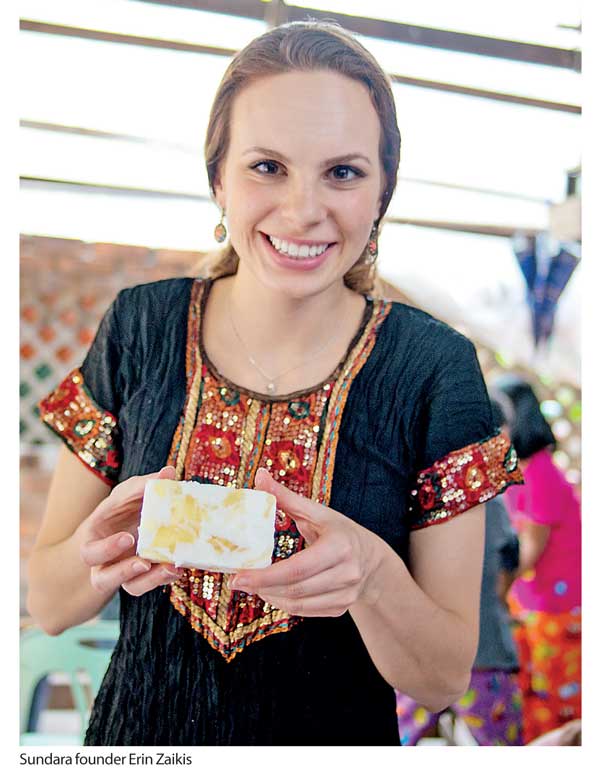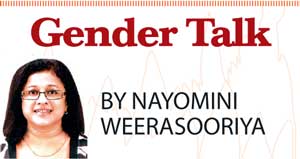04 Nov 2016 - {{hitsCtrl.values.hits}}

How much attention do you pay to the small tablet of soap you use in a hotel bathroom? Not much, I  assume. Use it a couple of times and then give it no thought as you check out. That soap is going somewhere when it is thrown away – either to pollute or hopefully, into recycling if such a thing exists.
assume. Use it a couple of times and then give it no thought as you check out. That soap is going somewhere when it is thrown away – either to pollute or hopefully, into recycling if such a thing exists.
Yet, in India, that’s exactly what Sundara is up to. Sundara is based on a platform that delivers community empowerment and hygiene education through female leadership. Using a simple model such as soap, Sundara is changing lives and impacting communities throughout India.
But how does it happen and where does the throwaway soap go?
Sundara collects thousands of tablets of soap the hospitality industry sends out as garbage. So far, they have saved 25,600 kilogrammes of soap that would otherwise have been thrown away. The soap is then sanitized, recycled and packaged by women workers who have been trained in the process. There are local women designated as hygiene ambassadors who then take them out to the slums of Mumbai where hygiene practices are desperately needed. The soap is also given to orphanages, schools and welfare organisations where it is
needed most.
Sundara is a unique concept because it uses the empowerment of women as a delivery process to take their products to the homes where soap is not used every day. The women themselves take a powerful message while becoming ambassadors of change – for
the better.
As a life-changing experience, Sundara’s outreach has impacted over 10,000 people in India, where 70 million people do not use soap. It is also where 1.5 million children die every year before the age of five from lack of hygiene and diseases such as diarrhea. Soap, which may not mean much to many of us, has become a life-saving aspect for the poorest of the poor in India. Sundara has worked out a powerful formula to address
the issue.
Sundara’s theory, a brilliant one that turns a simple everyday commodity that is thrown away without a single thought, into a workable commodity, has gained traction globally – today, they operate in Myanmar and Uganda in addition to India. The concept itself is appealing – the environmentally friendly and sustainable process, delivered to needy communities through women empowered with a passionate plea, is changing lives and making its impact felt.
Sundara is a clear example of how simple but powerful ideas can work towards generating change. It also shows that women everywhere, not necessarily equipped with the right skill set, can be effectively engaged as agents of change in creating awareness and generating a quiet revolution. Women are more eager and committed to making changes to hygiene practices in everyday situations because as mothers themselves, women would usually be more committed and accessible to achieving such changes.
For the women themselves, it has become a powerful notion that allows them to reach out to children and families in this manner. In one of the world’s worst neighbourhoods, the Mumbai slums that lack even the most basic sanitation, the outreach achieved by these women is commendable for one simple reason – it is saving lives.
Given the fact that the world today is connected digitally, Sundara’s concept is reaching many throughout the world – who are keen to endorse its commitment to a cause that is sustainable and workable. There are offers from globally-based soap manufacturing companies and efforts to market collections overseas – it must be borne in mind that in keeping with the sustainable and environmentally sound principles behind Sundara, the organisation has opted to work with companies that endorse and work with such ethical practices.
Behind Sundara is Erin Zaikis, who was first touched when she watched Slumdog Millionaire. Her travel throughout Asia made her realize that not everyone has access to soap and water. Her experiences helped her focus on one idea that could yield sustainable, workable results.
Often, if we look around, we too can find purpose and life-changing power in everyday simple things. By choosing to use such simple but significant change agents, we too can achieve success in reaching communities. And
transforming lives.
(Nayomini Weerasooriya, a senior journalist, writer and a PR professional, can be contacted at nayominiweerasooriya
@gmail.com)
10 Jan 2025 23 minute ago
10 Jan 2025 28 minute ago
10 Jan 2025 57 minute ago
10 Jan 2025 1 hours ago
10 Jan 2025 2 hours ago